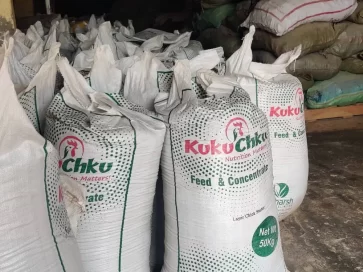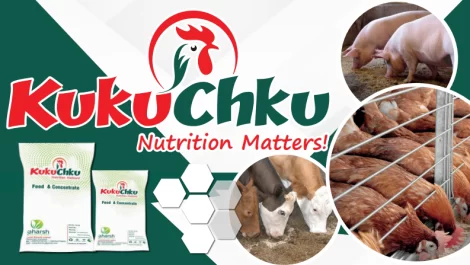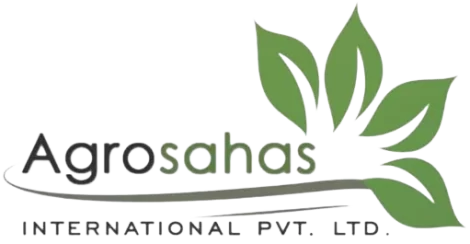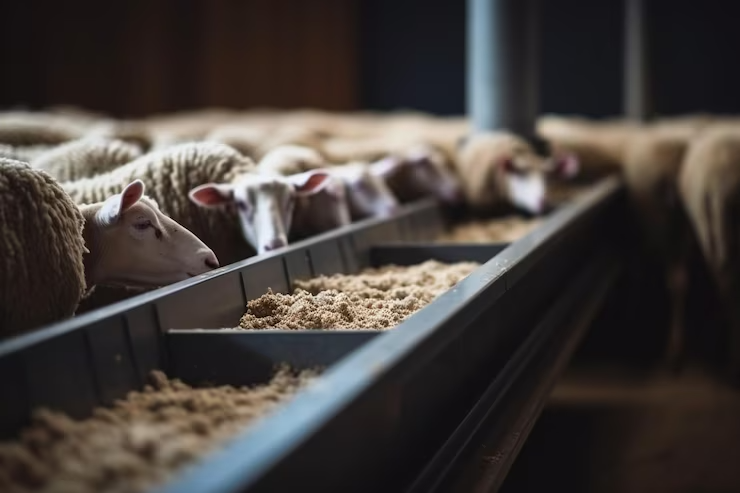In today’s rapidly evolving agricultural landscape, one-size-fits-all feed solutions are no longer sufficient. Farmers need feed solutions that are specifically tailored to their farm’s conditions, livestock breeds, and production goals. That’s why Kukuchku takes a personalized approach to animal nutrition, offering farm-specific feeds that are designed to enhance livestock health, growth, and productivity. In this blog, we’ll explore how Kukuchku customizes its feeds to meet the needs of individual farms and animals. We will also dive into the different types of feeds, the essential properties of high-quality feed, and the methods of feed preparation.
What Are Prepared Feeds for Farm Animals?
Prepared feeds are ready-made feed formulations designed to meet the nutritional needs of farm animals. These feeds come in various forms such as pellets, mash, crumbles, and concentrates, depending on the type of animal and its specific dietary requirements. At Kukuchku, we offer a wide variety of prepared feeds to cater to different livestock, including:
- Poultry Feeds for broilers, layers, and breeders.
- Pig Feeds for optimal growth and fattening.
- Dairy and Beef Cattle Feeds for milk production and muscle development.
- Custom Concentrates that can be mixed with locally available ingredients to create a balanced diet.
Prepared feeds are formulated using high-quality ingredients, ensuring that livestock receives all the essential nutrients they need to grow, produce, and remain healthy. These feeds are scientifically developed, taking into account factors such as the age, species, and purpose of the animal (e.g., meat production vs. milk production).

What Are the Necessary Properties of a Good Quality Feed?
Good quality feed is crucial to the health and productivity of livestock. Here are the essential properties that define a high-quality feed:
- Nutrient-Dense: The most important property of a good feed is its nutritional content. Livestock feeds should provide a balanced mix of proteins, carbohydrates, fats, vitamins, and minerals. For example, poultry feeds need higher protein content for rapid growth, while dairy cow feeds should be rich in carbohydrates and calcium to enhance milk production.
- Palatability: Animals are more likely to consume feed that tastes and smells good to them. High-quality feeds are designed to be palatable, ensuring that animals eat enough to meet their nutritional needs. Flavor enhancers may be added to increase feed intake.
- Digestibility: Feed must be easily digestible for the animals. Ingredients such as grains and legumes should be processed in a way that makes the nutrients more accessible. Digestibility is especially important for young animals whose digestive systems are still developing.
- Free from Contaminants: Quality feeds should be free from harmful substances such as mold, pesticides, and toxic metals. At Kukuchku, we ensure that all our feeds are rigorously tested for contaminants to safeguard the health of the animals.
- Consistent Formulation: Each batch of feed should have a consistent nutrient profile. This ensures that the animals are receiving the same quality of nutrition over time, which is essential for optimal growth and production.
What Are the Methods of Preparing Feed Ingredients?
The process of preparing feed ingredients is critical to ensuring that animals get the most out of their diet. At Kukuchku, we use several methods to prepare the highest quality feeds:
- Grinding and Milling: Grains such as maize and wheat are ground into fine particles to make them easier for animals to digest. Grinding also helps in mixing the feed ingredients more evenly, ensuring a balanced nutrient profile in every bite.
- Pelleting: In pelleting, the ground feed ingredients are compressed into small, dense pellets. Pelleting has several benefits, including reducing feed wastage, improving digestibility, and making the feed easier for animals to consume. Pelleted feeds are especially popular for poultry and pig farmers.
- Steam Flaking: Some ingredients, such as grains, can be steam-flaked to break down the starches, making them easier to digest. This process involves passing the grain through a steam chamber and then rolling it into flakes.
- Mixing: To ensure a uniform distribution of nutrients, we carefully mix the ingredients to create balanced feeds. This involves blending proteins, carbohydrates, fats, vitamins, and minerals in precise proportions to meet the needs of specific animals.
- Enrichment: Feeds are enriched with essential vitamins, minerals, and amino acids that may not be naturally present in high enough quantities in raw feed ingredients. For example, calcium is added to layer feeds to support strong eggshell production.

What Are the Different Types of Feed for Different Types of Animals?
Each type of livestock has unique nutritional requirements, and providing the right type of feed is essential to meeting these needs. Here are some examples of the different types of feeds offered by Kukuchku:
- Poultry Feeds: Poultry require high-protein diets to support their rapid growth and egg production. At Kukuchku, we provide specialized feeds for broilers, layers, and breeders. Our broiler feeds are formulated to enhance weight gain, while our layer feeds are rich in calcium to support egg-laying.
- Pig Feeds: Pigs require feeds with a high energy content to support their growth. Our pig concentrates, available in 20% and 30% formulations, are packed with the essential amino acids, minerals, and energy needed to fatten pigs efficiently.
- Cattle Feeds: Cattle feeds vary depending on whether the cattle are raised for dairy or beef production. Dairy cattle require high-carbohydrate diets to support milk production, while beef cattle benefit from high-protein feeds to promote muscle growth.
- Custom Feeds: For farmers with specific needs, Kukuchku offers custom feed solutions. We work with farmers to develop specialized feed formulas that suit the specific conditions of their farm, the breed of their livestock, and their production goals.
Why Customizing Feeds is Important for Farm Success
Customizing feeds based on the specific conditions of a farm is essential for optimizing livestock health and productivity. Here’s why:
- Adaptation to Local Conditions: Different farms operate under different environmental conditions. A farm in a tropical climate may require feeds that help livestock cope with heat stress, while farms in colder regions may need energy-rich feeds to help animals maintain body heat.
- Improved Animal Performance: Custom feeds are formulated to meet the specific growth stages and production goals of the animals. For example, a feed designed for lactating dairy cows will focus on maximizing milk production, while a broiler feed will promote rapid weight gain.
- Cost-Efficiency: Custom feeds allow farmers to use locally available ingredients to create cost-effective feed solutions. By blending custom concentrates with homegrown crops, farmers can reduce feed costs without compromising on the nutritional quality of the diet.
Conclusion: Kukuchku’s Commitment to Tailored Nutrition
At Kukuchku, we understand that no two farms are the same. That’s why we offer customized feed solutions that cater to the unique needs of each farm and its livestock. By providing tailored nutrition based on the specific conditions of a farm, we ensure that livestock receive the optimal nutrition they need to grow, produce, and stay healthy. Whether you’re raising poultry, pigs, or cattle, Kukuchku is here to support your farm’s success through farm-specific feed solutions.




